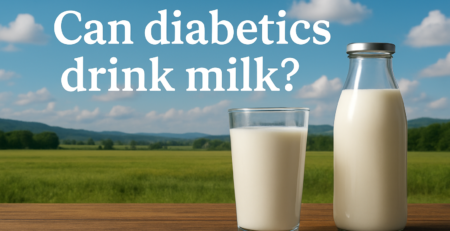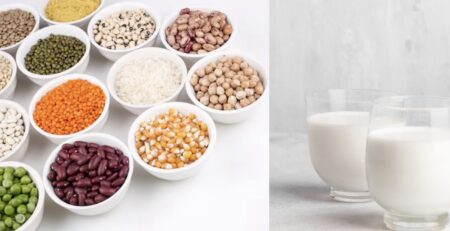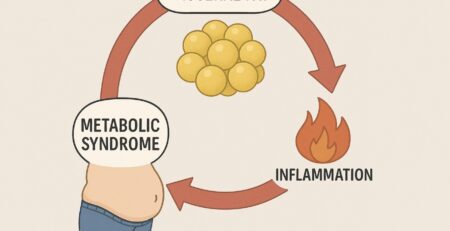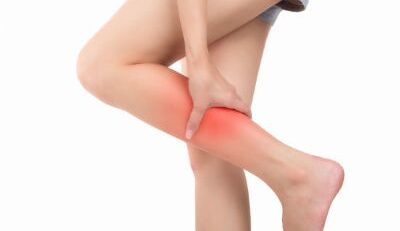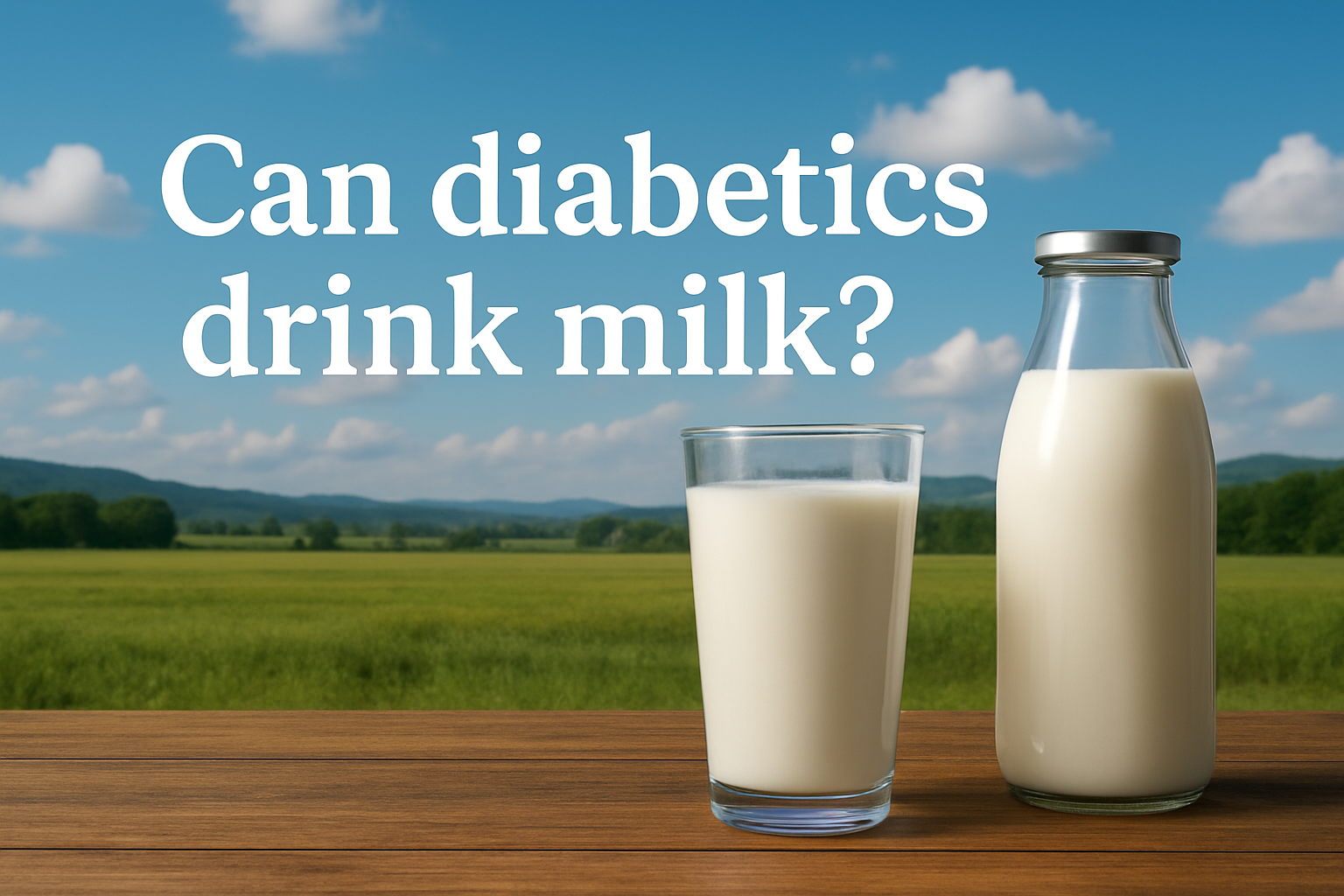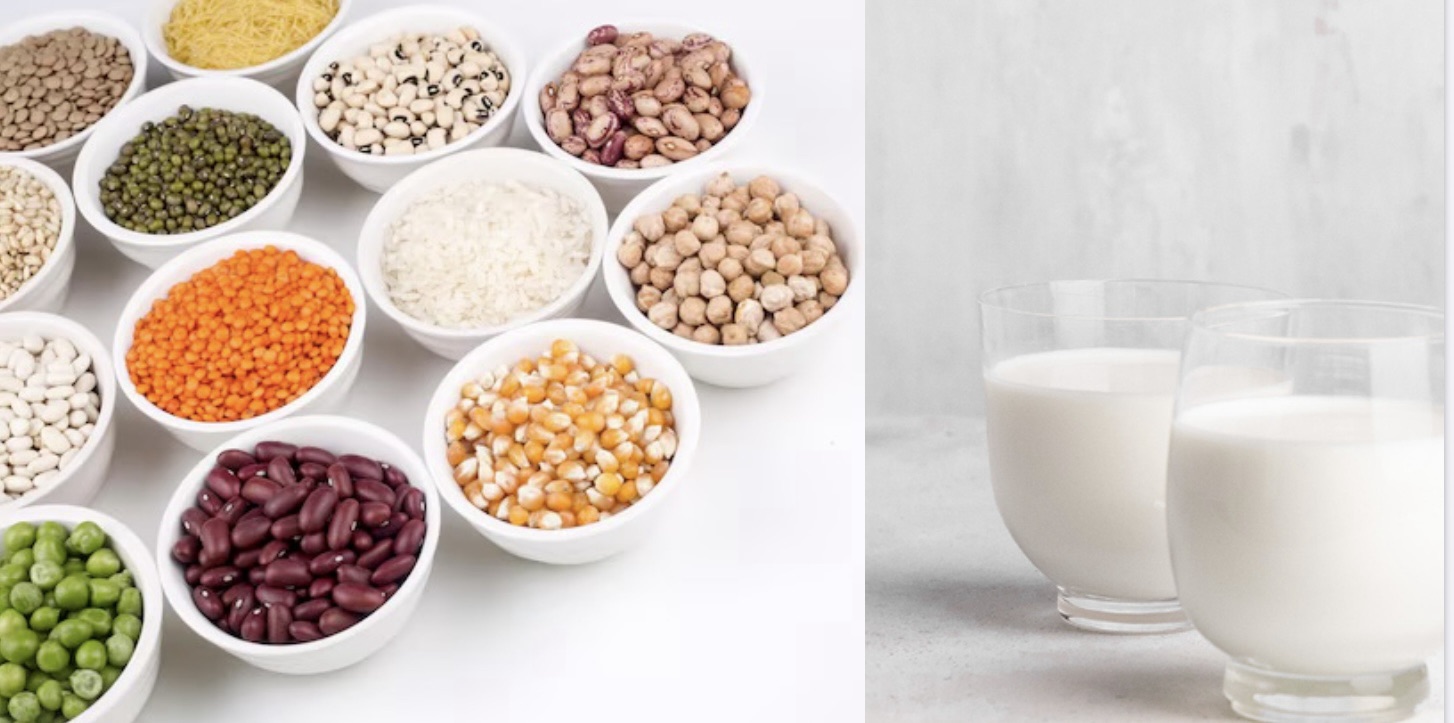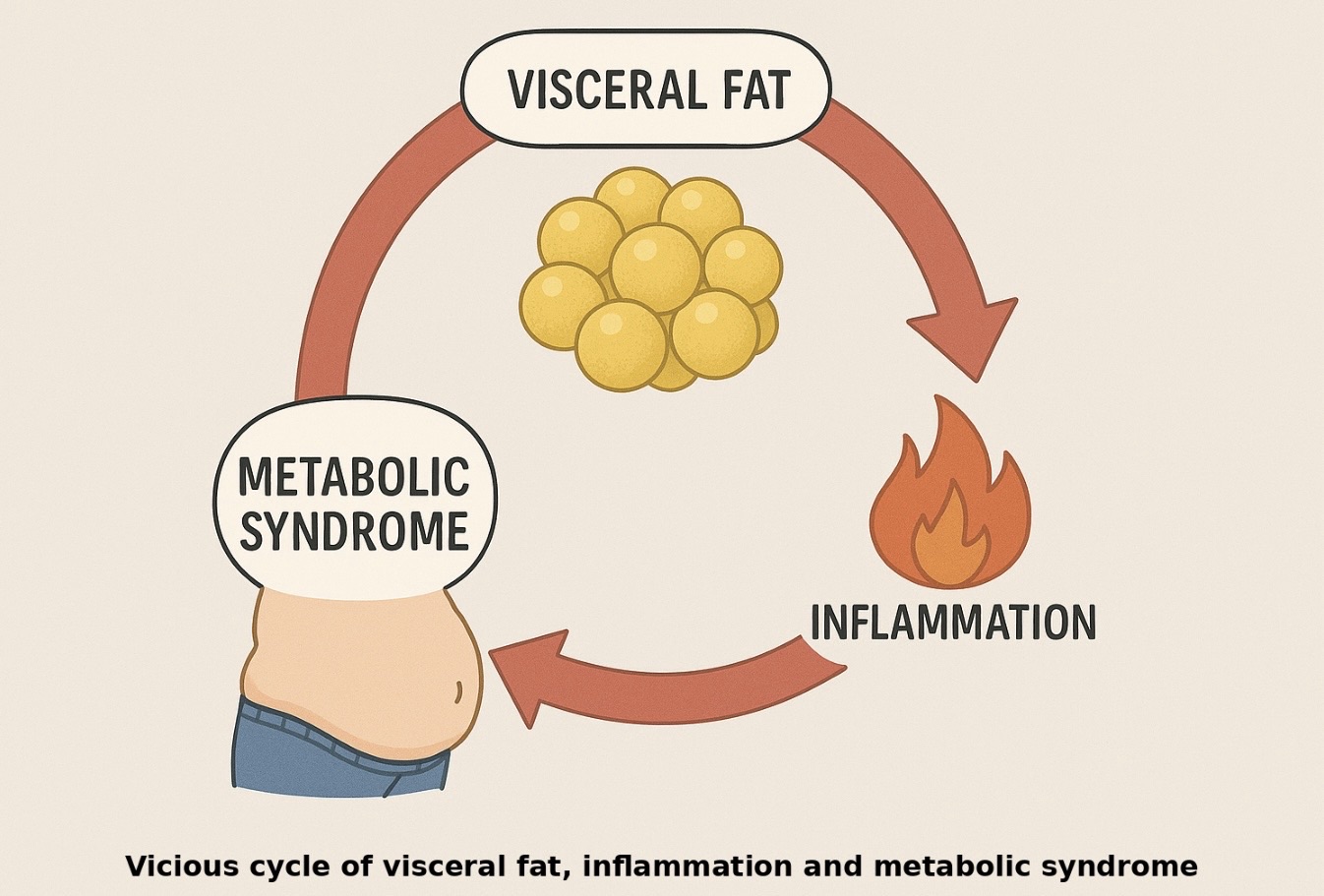Posts Shortcodes
You can show the posts with Porto Blog, Porto Recent Posts shortcodes.
Recent
Timeline
August 2025
Can Diabetics Drink Milk?
Yes, Most Diabetics Can Drink Milk!
Milk does not worsen diabetes!
Most diabetics need not give up milk!
Since ancient time, different sections of society have been strongly advocating against using milk as part of adult food, majorly for religious reasons.
Today many social media pundits strongly advocate against drinking milk.
Some commercial diabetes reversal programs treating people on mass scale and not individually, completely banish milk from the diets of diabetics.
***
Is there any strong scientific evidence that milk worsens sugar control and type 2 diabetes?
No, researchers have not found any strong evidence that milk worsens blood sugar control or diabetes.
In fact, most scientific studies tend to show neutral to even beneficial effects of milk on blood sugar levels of diabetics.
Research has shown that milk can in fact blunt blood sugar spikes after a high carbohydrate meal.
The two proteins in milk, casein and whey, contribute to this phenomenon.
Casein slows down the passage of food from stomach to the small intestine, that is gastric emptying, thereby slowing down the absorption of sugar in the blood and thus dampens the blood sugar spike.
Whey on the other hand has an insulin stimulating effect, thereby increasing insulin production in pancreas and helps lower post meal blood sugar.
Studies have also shown that inclusion of low fat milk and milk products or dairy in diets helps reduce visceral fat, insulin resistance, abdominal circumference and weight.
Studies have also shown similar results on full fat milk and dairy, probably because the satiety provided by the milk fats prevents munching in between meals.
Some studies have also shown that regular consumption of low fat milk and dairy, viz. curds, yogurt, buttermilk and paneer is associated with reduced risk of developing type 2 diabetes.
In fact high fat dairy was also seen in a long term study to have reversed pre diabetes and it wasn’t found to have worsened diabetes.
But it is always safer to drink low fat milk than full fat milk.
A large number of studies have shown that consumption of low fat milk has proved beneficial in preventing or controlling Type II diabetes. The abundance of calcium and magnesium as well as low glycemic index of milk are thought to be the cause of this effect.
***
While this is true, it is also true that some people may show blood sugar spikes after milk, especially when taken on empty stomach, possibly due to the lactose in milk.
These people can observe how their blood sugar responds to milk on empty stomach and when taken with food, so they can take or avoid milk as per how their body responds to milk.
But the rest of the diabetics needn’t shun milk as it has vast benefits for your general health.
In short, milk does not worsen sugar control and diabetes in more people than otherwise.
In fact, we have seen that the milk proteins blunt sugar spikes after a high carbohydrate meal.
Some studies have also shown neutral to mildly positive effects of milk on fasting blood sugar and HbA1c.
***
Bottom Line
Generally, milk does not worsen glucose control, and in many cases, it may even help blunt post meal blood sugar spikes, thanks to its protein and nutrient profile.
Long-term outcomes like fasting glucose and HbA1c show mixed but mostly neutral-to-slightly positive trends.
Individual responses vary, some people, especially on an empty stomach or those sensitive to lactose, might experience noticeable glucose spikes.
***
Clinical experience:
My own clinical experience helping diabetic patients get slim and healthy and control their diabetes better, at my Obesity Clinic in Pune or on my Weight Loss Treatment in Pune and all over the world, on balanced nutrition including ample low fat milk and regular walks of six km or more, has been excellent.
Everyone without exception, showed much better diabetes control, also because people under my care walked regularly and lost substantial weight.
Multiple studies confirm my experience that losing weight to reach their optimum weight can help many diabetics to substantially lower their drug dosage and insulin, some even to get rid of it and some to even go into complete remission.
Most of them have either been lacto – vegetarians or ate non vegetarian food once or twice a week.
The only source of vitamin B12 in their food is milk in pure vegetarians and still the major source of it also in the mix food habit people.
Also being the major source of top quality protein, calcium and magnesium and the B vitamins and the fat soluble vitamins A, D, E and K, although skimming milk removes the fat soluble vitamins from the whole milk, milk is an invaluable component of balanced nutrition that the diabetics can ill afford to miss out on, if milk doesn’t cause blood sugar spike in them.
***
Conclusion
Whether a diabetic should consume milk or not, should be determined individually by the patient and his or her doctor, based upon individual responses to milk consumption.
Not many diabetics will need to forgo the vast health benefits of milk by avoiding it.
Also read the article ‘Magical Health Benefits Of Milk’ on this website.
Protein Sufficiency In Vegetarian Diets!
Lacto-Vegetarian Diets Are Not Protein Deficient!
There are plenty of myths about proteins in vegetarian diets.
A common belief is that the there are not much proteins in vegetarian foods.
Many vegetarians are worried about the protein sufficiency of their diet.
Some of them even turn to protein supplements like protein powders, whey protein powders and some even try to become eggetarians meaning adding eggs to their diet, albeit forcibly.
***
What is the truth?
These fears are totally unfounded and vegetarians needn’t worry about any protein insufficiency of their diet, especially if they are lactovegetarian.
A balanced lactovegetarian diet can be as good in protein sufficiency as any omnivorous diet.
The three major protein sources of lactovegetarian diet are milk and a combination of pulses and cereals.
Nuts and seeds are also good sources of proteins and good fats, but since they are high in fats, they are also high in calories, and you can’t consume them in large quantities if you are watching your weight.
Milk of course is a complete protein providing all the nine essential amino acids.
Pulses and legumes and whole grain cereals provide ample proteins in vegetarian diet.
It is true that cereals and pulses individually do not provide the full range of all the nine essential amino acids.
Cereals lack lysine while pulses lack methionine, tryptophan and cysteine.
But cereals have methionine, tryptophan and cysteine and pulses have lysine.
Thus when taken together, cereals and pulses provide all nine essential amino acids and become complete proteins.
***
How much proteins do we need?
We need 0.8 gm of proteins per kg body weight.
So a 60 kg adult needs 48 gm protein daily.
***
How much protein does a lactovegetarian diet provide?
Two glasses of buffalo milk (500 ml) provide 20 to 21.5 gm of proteins
Two glasses of cow milk (500 ml) provide 16 to 17 gm of proteins
One bowl (100 gm) of buffalo milk curds provides 4.1 to 4.3 gm protein
One bowl (100 gm) of cow milk curds provides 3.2 to 3.4 gm protein
Four chapatis (made from 100 gm dry wheat flour) provide 12 gm of protein
Two bowls (200 gm) cooked rice provide about 5 gm of protein
Two bowl (200 gm) dal or usal provide 12 to 16 gm proteins
Vegetables and fruits, though low in proteins, still can contribute 1.5 to 2 gm protein per 100 gm, meaning they too can contribute over 5 gm protein if taken adequately.
So it is not too difficult to exceed 50 gm or more, of proteins, from a balanced vegetarian diet.
And as long as we eat a wider variety of protein sources, our body can easily assemble complete proteins from the available amino acid pool.
Lactovegetarians who consume half a litre of milk also get their recommended dietary allowance (RDA) of Vitamin B12.
***
Conclusion: Protein anxiety of vegetarians is totally unfounded
Lacto-vegetarians who consume a variety of whole foods, pulses and legumes and whole grain cereals, and dairy, fresh vegetables and fruits have no reason to fear protein deficiency or their overall health.
In fact, they have better intestinal health, lower risk of chronic diseases like hypertension, type 2 diabetes, heart disease and strokes and some cancers and healthier blood and weight profiles.
The idea that vegetarians must struggle to meet protein needs is not supported by current nutritional science.
So stop worrying and focus on eating a wider variety of whole foods and low fat dairy, your protein requirements will automatically be taken care of!
Pure vegans, who don’t consume milk, of course will struggle a little to get enough proteins. They of course do not get any Vitamin B12 in their diet, they have to take it as a supplement.
Also read the article ‘Basics Of Nutrition’ on this website.
Grid
Can Diabetics Drink Milk?
Yes, Most Diabetics Can Drink Milk!
Milk does not worsen diabetes!
Most diabetics need not give up milk!
Since ancient time, different sections of society have been strongly advocating against using milk as part of adult food, majorly for religious reasons.
Today many social media pundits strongly advocate against drinking milk.
Some commercial diabetes reversal programs treating people on mass scale and not individually, completely banish milk from the diets of diabetics.
***
Is there any strong scientific evidence that milk worsens sugar control and type 2 diabetes?
No, researchers have not found any strong evidence that milk worsens blood sugar control or diabetes.
In fact, most scientific studies tend to show neutral to even beneficial effects of milk on blood sugar levels of diabetics.
Research has shown that milk can in fact blunt blood sugar spikes after a high carbohydrate meal.
The two proteins in milk, casein and whey, contribute to this phenomenon.
Casein slows down the passage of food from stomach to the small intestine, that is gastric emptying, thereby slowing down the absorption of sugar in the blood and thus dampens the blood sugar spike.
Whey on the other hand has an insulin stimulating effect, thereby increasing insulin production in pancreas and helps lower post meal blood sugar.
Studies have also shown that inclusion of low fat milk and milk products or dairy in diets helps reduce visceral fat, insulin resistance, abdominal circumference and weight.
Studies have also shown similar results on full fat milk and dairy, probably because the satiety provided by the milk fats prevents munching in between meals.
Some studies have also shown that regular consumption of low fat milk and dairy, viz. curds, yogurt, buttermilk and paneer is associated with reduced risk of developing type 2 diabetes.
In fact high fat dairy was also seen in a long term study to have reversed pre diabetes and it wasn’t found to have worsened diabetes.
But it is always safer to drink low fat milk than full fat milk.
A large number of studies have shown that consumption of low fat milk has proved beneficial in preventing or controlling Type II diabetes. The abundance of calcium and magnesium as well as low glycemic index of milk are thought to be the cause of this effect.
***
While this is true, it is also true that some people may show blood sugar spikes after milk, especially when taken on empty stomach, possibly due to the lactose in milk.
These people can observe how their blood sugar responds to milk on empty stomach and when taken with food, so they can take or avoid milk as per how their body responds to milk.
But the rest of the diabetics needn’t shun milk as it has vast benefits for your general health.
In short, milk does not worsen sugar control and diabetes in more people than otherwise.
In fact, we have seen that the milk proteins blunt sugar spikes after a high carbohydrate meal.
Some studies have also shown neutral to mildly positive effects of milk on fasting blood sugar and HbA1c.
***
Bottom Line
Generally, milk does not worsen glucose control, and in many cases, it may even help blunt post meal blood sugar spikes, thanks to its protein and nutrient profile.
Long-term outcomes like fasting glucose and HbA1c show mixed but mostly neutral-to-slightly positive trends.
Individual responses vary, some people, especially on an empty stomach or those sensitive to lactose, might experience noticeable glucose spikes.
***
Clinical experience:
My own clinical experience helping diabetic patients get slim and healthy and control their diabetes better, at my Obesity Clinic in Pune or on my Weight Loss Treatment in Pune and all over the world, on balanced nutrition including ample low fat milk and regular walks of six km or more, has been excellent.
Everyone without exception, showed much better diabetes control, also because people under my care walked regularly and lost substantial weight.
Multiple studies confirm my experience that losing weight to reach their optimum weight can help many diabetics to substantially lower their drug dosage and insulin, some even to get rid of it and some to even go into complete remission.
Most of them have either been lacto – vegetarians or ate non vegetarian food once or twice a week.
The only source of vitamin B12 in their food is milk in pure vegetarians and still the major source of it also in the mix food habit people.
Also being the major source of top quality protein, calcium and magnesium and the B vitamins and the fat soluble vitamins A, D, E and K, although skimming milk removes the fat soluble vitamins from the whole milk, milk is an invaluable component of balanced nutrition that the diabetics can ill afford to miss out on, if milk doesn’t cause blood sugar spike in them.
***
Conclusion
Whether a diabetic should consume milk or not, should be determined individually by the patient and his or her doctor, based upon individual responses to milk consumption.
Not many diabetics will need to forgo the vast health benefits of milk by avoiding it.
Also read the article ‘Magical Health Benefits Of Milk’ on this website.
Protein Sufficiency In Vegetarian Diets!
Lacto-Vegetarian Diets Are Not Protein Deficient!
There are plenty of myths about proteins in vegetarian diets.
A common belief is that the there are not much proteins in vegetarian foods.
Many vegetarians are worried about the protein sufficiency of their diet.
Some of them even turn to protein supplements like protein powders, whey protein powders and some even try to become eggetarians meaning adding eggs to their diet, albeit forcibly.
***
What is the truth?
These fears are totally unfounded and vegetarians needn’t worry about any protein insufficiency of their diet, especially if they are lactovegetarian.
A balanced lactovegetarian diet can be as good in protein sufficiency as any omnivorous diet.
The three major protein sources of lactovegetarian diet are milk and a combination of pulses and cereals.
Nuts and seeds are also good sources of proteins and good fats, but since they are high in fats, they are also high in calories, and you can’t consume them in large quantities if you are watching your weight.
Milk of course is a complete protein providing all the nine essential amino acids.
Pulses and legumes and whole grain cereals provide ample proteins in vegetarian diet.
It is true that cereals and pulses individually do not provide the full range of all the nine essential amino acids.
Cereals lack lysine while pulses lack methionine, tryptophan and cysteine.
But cereals have methionine, tryptophan and cysteine and pulses have lysine.
Thus when taken together, cereals and pulses provide all nine essential amino acids and become complete proteins.
***
How much proteins do we need?
We need 0.8 gm of proteins per kg body weight.
So a 60 kg adult needs 48 gm protein daily.
***
How much protein does a lactovegetarian diet provide?
Two glasses of buffalo milk (500 ml) provide 20 to 21.5 gm of proteins
Two glasses of cow milk (500 ml) provide 16 to 17 gm of proteins
One bowl (100 gm) of buffalo milk curds provides 4.1 to 4.3 gm protein
One bowl (100 gm) of cow milk curds provides 3.2 to 3.4 gm protein
Four chapatis (made from 100 gm dry wheat flour) provide 12 gm of protein
Two bowls (200 gm) cooked rice provide about 5 gm of protein
Two bowl (200 gm) dal or usal provide 12 to 16 gm proteins
Vegetables and fruits, though low in proteins, still can contribute 1.5 to 2 gm protein per 100 gm, meaning they too can contribute over 5 gm protein if taken adequately.
So it is not too difficult to exceed 50 gm or more, of proteins, from a balanced vegetarian diet.
And as long as we eat a wider variety of protein sources, our body can easily assemble complete proteins from the available amino acid pool.
Lactovegetarians who consume half a litre of milk also get their recommended dietary allowance (RDA) of Vitamin B12.
***
Conclusion: Protein anxiety of vegetarians is totally unfounded
Lacto-vegetarians who consume a variety of whole foods, pulses and legumes and whole grain cereals, and dairy, fresh vegetables and fruits have no reason to fear protein deficiency or their overall health.
In fact, they have better intestinal health, lower risk of chronic diseases like hypertension, type 2 diabetes, heart disease and strokes and some cancers and healthier blood and weight profiles.
The idea that vegetarians must struggle to meet protein needs is not supported by current nutritional science.
So stop worrying and focus on eating a wider variety of whole foods and low fat dairy, your protein requirements will automatically be taken care of!
Pure vegans, who don’t consume milk, of course will struggle a little to get enough proteins. They of course do not get any Vitamin B12 in their diet, they have to take it as a supplement.
Also read the article ‘Basics Of Nutrition’ on this website.
Interrelationship Between Visceral fat, Inflammation And Metabolic Syndrome!
The Cluster Of Visceral Fat, Inflammation And Metabolic Syndrome!
The interrelationship between inflammation, excess visceral fat, and metabolic syndrome is central to understanding many chronic diseases, especially those involving the heart, blood sugar regulation, and lipid balance. Here’s a clear breakdown of how these three are interconnected.
***
Visceral Fat as a Source of Chronic Inflammation
Visceral fat (fat stored around internal organs, especially in the abdomen) is biologically active.
It secretes pro-inflammatory cytokines, such as:
TNF-α (Tumour Necrosis Factor alpha)
IL-6 (Interleukin-6)
These compounds create a state of chronic low-grade inflammation in the body, unlike the acute inflammation seen in infections or injuries.
***
Inflammation Promotes Insulin Resistance
Chronic inflammation interferes with insulin signalling pathways.
Cytokines like TNF-α disrupt insulin receptors, making body cells less responsive to insulin.
This is a key mechanism in the development of insulin resistance, a hallmark of metabolic syndrome.
***
Metabolic syndrome is cluster of following conditions and it creates hypertension, type 2 diabetes, heart disease, strokes, and also diseases like fatty liver and PCOS in ladies and increases the risk of developing some cancers.
Metabolic Syndrome and Its Inflammatory Roots
It also increases the risk of development of fatty liver disease and in women, polycystic ovarian syndrome or PCOS.
These conditions include:
High waist circumference (central obesity / visceral fat)
High blood pressure
Insulin resistance (high fasting blood sugar)
High triglycerides
Low HDL (good) cholesterol
Chronic inflammation exacerbates these conditions and metabolic syndrome and they in turn fuel more inflammation, creating a vicious cycle.
***
Diagnostic Clues
Assessment of visceral fat
It can be done by measuring the waist circumference and by using the body composition scans.
Waist circumference of over 37 inches (94 cm) in Indian men and above 31.5 inches (80 cm) indicate presence of excess visceral fat in the abdomen.
CRP (C-reactive protein) is elevated due to inflammation.
Elevated hs-CRP (high-sensitivity C-reactive protein) is a marker of inflammation linked to metabolic syndrome.
Levels of hs-CRP above of 1 mg/L indicate moderate inflammation and over 3 mg/L indicates significant levels of inflammation and indicates increased risk of developing diabetes and heart disease.
***
Breaking the Vicious Cycle
Losing weight helps reverse abdominal obesity and this helps reduce inflammation.
Adapting an anti inflammatory diet made up of whole grain cereals and pulses, fruits and vegetables, low fat milk and sea fish if possible (a diet rich in fiber, antioxidants and lean protein and omega-3 fats) helps.
Cardiovascular exercise helps reduce visceral fat and inflammation.
Medications like metformin or statins prescribed by doctors may help in some cases.
Also read the articles ‘Abdominal Obesity, Diabetes And Heart Disease’, ‘Acute And Chronic Inflammation’ and ‘Metabolic Syndrome’.
Medium
Can Diabetics Drink Milk?
Yes, Most Diabetics Can Drink Milk!
Milk does not worsen diabetes!
Most diabetics need not give up milk!
Since ancient time, different sections of society have been strongly advocating against using milk as part of adult food, majorly for religious reasons.
Today many social media pundits strongly advocate against drinking milk.
Some commercial diabetes reversal programs treating people on mass scale and not individually, completely banish milk from the diets of diabetics.
***
Is there any strong scientific evidence that milk worsens sugar control and type 2 diabetes?
No, researchers have not found any strong evidence that milk worsens blood sugar control or diabetes.
In fact, most scientific studies tend to show neutral to even beneficial effects of milk on blood sugar levels of diabetics.
Research has shown that milk can in fact blunt blood sugar spikes after a high carbohydrate meal.
The two proteins in milk, casein and whey, contribute to this phenomenon.
Casein slows down the passage of food from stomach to the small intestine, that is gastric emptying, thereby slowing down the absorption of sugar in the blood and thus dampens the blood sugar spike.
Whey on the other hand has an insulin stimulating effect, thereby increasing insulin production in pancreas and helps lower post meal blood sugar.
Studies have also shown that inclusion of low fat milk and milk products or dairy in diets helps reduce visceral fat, insulin resistance, abdominal circumference and weight.
Studies have also shown similar results on full fat milk and dairy, probably because the satiety provided by the milk fats prevents munching in between meals.
Some studies have also shown that regular consumption of low fat milk and dairy, viz. curds, yogurt, buttermilk and paneer is associated with reduced risk of developing type 2 diabetes.
In fact high fat dairy was also seen in a long term study to have reversed pre diabetes and it wasn’t found to have worsened diabetes.
But it is always safer to drink low fat milk than full fat milk.
A large number of studies have shown that consumption of low fat milk has proved beneficial in preventing or controlling Type II diabetes. The abundance of calcium and magnesium as well as low glycemic index of milk are thought to be the cause of this effect.
***
While this is true, it is also true that some people may show blood sugar spikes after milk, especially when taken on empty stomach, possibly due to the lactose in milk.
These people can observe how their blood sugar responds to milk on empty stomach and when taken with food, so they can take or avoid milk as per how their body responds to milk.
But the rest of the diabetics needn’t shun milk as it has vast benefits for your general health.
In short, milk does not worsen sugar control and diabetes in more people than otherwise.
In fact, we have seen that the milk proteins blunt sugar spikes after a high carbohydrate meal.
Some studies have also shown neutral to mildly positive effects of milk on fasting blood sugar and HbA1c.
***
Bottom Line
Generally, milk does not worsen glucose control, and in many cases, it may even help blunt post meal blood sugar spikes, thanks to its protein and nutrient profile.
Long-term outcomes like fasting glucose and HbA1c show mixed but mostly neutral-to-slightly positive trends.
Individual responses vary, some people, especially on an empty stomach or those sensitive to lactose, might experience noticeable glucose spikes.
***
Clinical experience:
My own clinical experience helping diabetic patients get slim and healthy and control their diabetes better, at my Obesity Clinic in Pune or on my Weight Loss Treatment in Pune and all over the world, on balanced nutrition including ample low fat milk and regular walks of six km or more, has been excellent.
Everyone without exception, showed much better diabetes control, also because people under my care walked regularly and lost substantial weight.
Multiple studies confirm my experience that losing weight to reach their optimum weight can help many diabetics to substantially lower their drug dosage and insulin, some even to get rid of it and some to even go into complete remission.
Most of them have either been lacto – vegetarians or ate non vegetarian food once or twice a week.
The only source of vitamin B12 in their food is milk in pure vegetarians and still the major source of it also in the mix food habit people.
Also being the major source of top quality protein, calcium and magnesium and the B vitamins and the fat soluble vitamins A, D, E and K, although skimming milk removes the fat soluble vitamins from the whole milk, milk is an invaluable component of balanced nutrition that the diabetics can ill afford to miss out on, if milk doesn’t cause blood sugar spike in them.
***
Conclusion
Whether a diabetic should consume milk or not, should be determined individually by the patient and his or her doctor, based upon individual responses to milk consumption.
Not many diabetics will need to forgo the vast health benefits of milk by avoiding it.
Also read the article ‘Magical Health Benefits Of Milk’ on this website.
Protein Sufficiency In Vegetarian Diets!
Lacto-Vegetarian Diets Are Not Protein Deficient!
There are plenty of myths about proteins in vegetarian diets.
A common belief is that the there are not much proteins in vegetarian foods.
Many vegetarians are worried about the protein sufficiency of their diet.
Some of them even turn to protein supplements like protein powders, whey protein powders and some even try to become eggetarians meaning adding eggs to their diet, albeit forcibly.
***
What is the truth?
These fears are totally unfounded and vegetarians needn’t worry about any protein insufficiency of their diet, especially if they are lactovegetarian.
A balanced lactovegetarian diet can be as good in protein sufficiency as any omnivorous diet.
The three major protein sources of lactovegetarian diet are milk and a combination of pulses and cereals.
Nuts and seeds are also good sources of proteins and good fats, but since they are high in fats, they are also high in calories, and you can’t consume them in large quantities if you are watching your weight.
Milk of course is a complete protein providing all the nine essential amino acids.
Pulses and legumes and whole grain cereals provide ample proteins in vegetarian diet.
It is true that cereals and pulses individually do not provide the full range of all the nine essential amino acids.
Cereals lack lysine while pulses lack methionine, tryptophan and cysteine.
But cereals have methionine, tryptophan and cysteine and pulses have lysine.
Thus when taken together, cereals and pulses provide all nine essential amino acids and become complete proteins.
***
How much proteins do we need?
We need 0.8 gm of proteins per kg body weight.
So a 60 kg adult needs 48 gm protein daily.
***
How much protein does a lactovegetarian diet provide?
Two glasses of buffalo milk (500 ml) provide 20 to 21.5 gm of proteins
Two glasses of cow milk (500 ml) provide 16 to 17 gm of proteins
One bowl (100 gm) of buffalo milk curds provides 4.1 to 4.3 gm protein
One bowl (100 gm) of cow milk curds provides 3.2 to 3.4 gm protein
Four chapatis (made from 100 gm dry wheat flour) provide 12 gm of protein
Two bowls (200 gm) cooked rice provide about 5 gm of protein
Two bowl (200 gm) dal or usal provide 12 to 16 gm proteins
Vegetables and fruits, though low in proteins, still can contribute 1.5 to 2 gm protein per 100 gm, meaning they too can contribute over 5 gm protein if taken adequately.
So it is not too difficult to exceed 50 gm or more, of proteins, from a balanced vegetarian diet.
And as long as we eat a wider variety of protein sources, our body can easily assemble complete proteins from the available amino acid pool.
Lactovegetarians who consume half a litre of milk also get their recommended dietary allowance (RDA) of Vitamin B12.
***
Conclusion: Protein anxiety of vegetarians is totally unfounded
Lacto-vegetarians who consume a variety of whole foods, pulses and legumes and whole grain cereals, and dairy, fresh vegetables and fruits have no reason to fear protein deficiency or their overall health.
In fact, they have better intestinal health, lower risk of chronic diseases like hypertension, type 2 diabetes, heart disease and strokes and some cancers and healthier blood and weight profiles.
The idea that vegetarians must struggle to meet protein needs is not supported by current nutritional science.
So stop worrying and focus on eating a wider variety of whole foods and low fat dairy, your protein requirements will automatically be taken care of!
Pure vegans, who don’t consume milk, of course will struggle a little to get enough proteins. They of course do not get any Vitamin B12 in their diet, they have to take it as a supplement.
Also read the article ‘Basics Of Nutrition’ on this website.
Large
Can Diabetics Drink Milk?
Yes, Most Diabetics Can Drink Milk!
Milk does not worsen diabetes!
Most diabetics need not give up milk!
Since ancient time, different sections of society have been strongly advocating against using milk as part of adult food, majorly for religious reasons.
Today many social media pundits strongly advocate against drinking milk.
Some commercial diabetes reversal programs treating people on mass scale and not individually, completely banish milk from the diets of diabetics.
***
Is there any strong scientific evidence that milk worsens sugar control and type 2 diabetes?
No, researchers have not found any strong evidence that milk worsens blood sugar control or diabetes.
In fact, most scientific studies tend to show neutral to even beneficial effects of milk on blood sugar levels of diabetics.
Research has shown that milk can in fact blunt blood sugar spikes after a high carbohydrate meal.
The two proteins in milk, casein and whey, contribute to this phenomenon.
Casein slows down the passage of food from stomach to the small intestine, that is gastric emptying, thereby slowing down the absorption of sugar in the blood and thus dampens the blood sugar spike.
Whey on the other hand has an insulin stimulating effect, thereby increasing insulin production in pancreas and helps lower post meal blood sugar.
Studies have also shown that inclusion of low fat milk and milk products or dairy in diets helps reduce visceral fat, insulin resistance, abdominal circumference and weight.
Studies have also shown similar results on full fat milk and dairy, probably because the satiety provided by the milk fats prevents munching in between meals.
Some studies have also shown that regular consumption of low fat milk and dairy, viz. curds, yogurt, buttermilk and paneer is associated with reduced risk of developing type 2 diabetes.
In fact high fat dairy was also seen in a long term study to have reversed pre diabetes and it wasn’t found to have worsened diabetes.
But it is always safer to drink low fat milk than full fat milk.
A large number of studies have shown that consumption of low fat milk has proved beneficial in preventing or controlling Type II diabetes. The abundance of calcium and magnesium as well as low glycemic index of milk are thought to be the cause of this effect.
***
While this is true, it is also true that some people may show blood sugar spikes after milk, especially when taken on empty stomach, possibly due to the lactose in milk.
These people can observe how their blood sugar responds to milk on empty stomach and when taken with food, so they can take or avoid milk as per how their body responds to milk.
But the rest of the diabetics needn’t shun milk as it has vast benefits for your general health.
In short, milk does not worsen sugar control and diabetes in more people than otherwise.
In fact, we have seen that the milk proteins blunt sugar spikes after a high carbohydrate meal.
Some studies have also shown neutral to mildly positive effects of milk on fasting blood sugar and HbA1c.
***
Bottom Line
Generally, milk does not worsen glucose control, and in many cases, it may even help blunt post meal blood sugar spikes, thanks to its protein and nutrient profile.
Long-term outcomes like fasting glucose and HbA1c show mixed but mostly neutral-to-slightly positive trends.
Individual responses vary, some people, especially on an empty stomach or those sensitive to lactose, might experience noticeable glucose spikes.
***
Clinical experience:
My own clinical experience helping diabetic patients get slim and healthy and control their diabetes better, at my Obesity Clinic in Pune or on my Weight Loss Treatment in Pune and all over the world, on balanced nutrition including ample low fat milk and regular walks of six km or more, has been excellent.
Everyone without exception, showed much better diabetes control, also because people under my care walked regularly and lost substantial weight.
Multiple studies confirm my experience that losing weight to reach their optimum weight can help many diabetics to substantially lower their drug dosage and insulin, some even to get rid of it and some to even go into complete remission.
Most of them have either been lacto – vegetarians or ate non vegetarian food once or twice a week.
The only source of vitamin B12 in their food is milk in pure vegetarians and still the major source of it also in the mix food habit people.
Also being the major source of top quality protein, calcium and magnesium and the B vitamins and the fat soluble vitamins A, D, E and K, although skimming milk removes the fat soluble vitamins from the whole milk, milk is an invaluable component of balanced nutrition that the diabetics can ill afford to miss out on, if milk doesn’t cause blood sugar spike in them.
***
Conclusion
Whether a diabetic should consume milk or not, should be determined individually by the patient and his or her doctor, based upon individual responses to milk consumption.
Not many diabetics will need to forgo the vast health benefits of milk by avoiding it.
Also read the article ‘Magical Health Benefits Of Milk’ on this website.
Protein Sufficiency In Vegetarian Diets!
Lacto-Vegetarian Diets Are Not Protein Deficient!
There are plenty of myths about proteins in vegetarian diets.
A common belief is that the there are not much proteins in vegetarian foods.
Many vegetarians are worried about the protein sufficiency of their diet.
Some of them even turn to protein supplements like protein powders, whey protein powders and some even try to become eggetarians meaning adding eggs to their diet, albeit forcibly.
***
What is the truth?
These fears are totally unfounded and vegetarians needn’t worry about any protein insufficiency of their diet, especially if they are lactovegetarian.
A balanced lactovegetarian diet can be as good in protein sufficiency as any omnivorous diet.
The three major protein sources of lactovegetarian diet are milk and a combination of pulses and cereals.
Nuts and seeds are also good sources of proteins and good fats, but since they are high in fats, they are also high in calories, and you can’t consume them in large quantities if you are watching your weight.
Milk of course is a complete protein providing all the nine essential amino acids.
Pulses and legumes and whole grain cereals provide ample proteins in vegetarian diet.
It is true that cereals and pulses individually do not provide the full range of all the nine essential amino acids.
Cereals lack lysine while pulses lack methionine, tryptophan and cysteine.
But cereals have methionine, tryptophan and cysteine and pulses have lysine.
Thus when taken together, cereals and pulses provide all nine essential amino acids and become complete proteins.
***
How much proteins do we need?
We need 0.8 gm of proteins per kg body weight.
So a 60 kg adult needs 48 gm protein daily.
***
How much protein does a lactovegetarian diet provide?
Two glasses of buffalo milk (500 ml) provide 20 to 21.5 gm of proteins
Two glasses of cow milk (500 ml) provide 16 to 17 gm of proteins
One bowl (100 gm) of buffalo milk curds provides 4.1 to 4.3 gm protein
One bowl (100 gm) of cow milk curds provides 3.2 to 3.4 gm protein
Four chapatis (made from 100 gm dry wheat flour) provide 12 gm of protein
Two bowls (200 gm) cooked rice provide about 5 gm of protein
Two bowl (200 gm) dal or usal provide 12 to 16 gm proteins
Vegetables and fruits, though low in proteins, still can contribute 1.5 to 2 gm protein per 100 gm, meaning they too can contribute over 5 gm protein if taken adequately.
So it is not too difficult to exceed 50 gm or more, of proteins, from a balanced vegetarian diet.
And as long as we eat a wider variety of protein sources, our body can easily assemble complete proteins from the available amino acid pool.
Lactovegetarians who consume half a litre of milk also get their recommended dietary allowance (RDA) of Vitamin B12.
***
Conclusion: Protein anxiety of vegetarians is totally unfounded
Lacto-vegetarians who consume a variety of whole foods, pulses and legumes and whole grain cereals, and dairy, fresh vegetables and fruits have no reason to fear protein deficiency or their overall health.
In fact, they have better intestinal health, lower risk of chronic diseases like hypertension, type 2 diabetes, heart disease and strokes and some cancers and healthier blood and weight profiles.
The idea that vegetarians must struggle to meet protein needs is not supported by current nutritional science.
So stop worrying and focus on eating a wider variety of whole foods and low fat dairy, your protein requirements will automatically be taken care of!
Pure vegans, who don’t consume milk, of course will struggle a little to get enough proteins. They of course do not get any Vitamin B12 in their diet, they have to take it as a supplement.
Also read the article ‘Basics Of Nutrition’ on this website.
Large Alt
Can Diabetics Drink Milk?
Yes, Most Diabetics Can Drink Milk!
Milk does not worsen diabetes!
Most diabetics need not give up milk!
Since ancient time, different sections of society have been strongly advocating against using milk as part of adult food, majorly for religious reasons.
Today many social media pundits strongly advocate against drinking milk.
Some commercial diabetes reversal programs treating people on mass scale and not individually, completely banish milk from the diets of diabetics.
***
Is there any strong scientific evidence that milk worsens sugar control and type 2 diabetes?
No, researchers have not found any strong evidence that milk worsens blood sugar control or diabetes.
In fact, most scientific studies tend to show neutral to even beneficial effects of milk on blood sugar levels of diabetics.
Research has shown that milk can in fact blunt blood sugar spikes after a high carbohydrate meal.
The two proteins in milk, casein and whey, contribute to this phenomenon.
Casein slows down the passage of food from stomach to the small intestine, that is gastric emptying, thereby slowing down the absorption of sugar in the blood and thus dampens the blood sugar spike.
Whey on the other hand has an insulin stimulating effect, thereby increasing insulin production in pancreas and helps lower post meal blood sugar.
Studies have also shown that inclusion of low fat milk and milk products or dairy in diets helps reduce visceral fat, insulin resistance, abdominal circumference and weight.
Studies have also shown similar results on full fat milk and dairy, probably because the satiety provided by the milk fats prevents munching in between meals.
Some studies have also shown that regular consumption of low fat milk and dairy, viz. curds, yogurt, buttermilk and paneer is associated with reduced risk of developing type 2 diabetes.
In fact high fat dairy was also seen in a long term study to have reversed pre diabetes and it wasn’t found to have worsened diabetes.
But it is always safer to drink low fat milk than full fat milk.
A large number of studies have shown that consumption of low fat milk has proved beneficial in preventing or controlling Type II diabetes. The abundance of calcium and magnesium as well as low glycemic index of milk are thought to be the cause of this effect.
***
While this is true, it is also true that some people may show blood sugar spikes after milk, especially when taken on empty stomach, possibly due to the lactose in milk.
These people can observe how their blood sugar responds to milk on empty stomach and when taken with food, so they can take or avoid milk as per how their body responds to milk.
But the rest of the diabetics needn’t shun milk as it has vast benefits for your general health.
In short, milk does not worsen sugar control and diabetes in more people than otherwise.
In fact, we have seen that the milk proteins blunt sugar spikes after a high carbohydrate meal.
Some studies have also shown neutral to mildly positive effects of milk on fasting blood sugar and HbA1c.
***
Bottom Line
Generally, milk does not worsen glucose control, and in many cases, it may even help blunt post meal blood sugar spikes, thanks to its protein and nutrient profile.
Long-term outcomes like fasting glucose and HbA1c show mixed but mostly neutral-to-slightly positive trends.
Individual responses vary, some people, especially on an empty stomach or those sensitive to lactose, might experience noticeable glucose spikes.
***
Clinical experience:
My own clinical experience helping diabetic patients get slim and healthy and control their diabetes better, at my Obesity Clinic in Pune or on my Weight Loss Treatment in Pune and all over the world, on balanced nutrition including ample low fat milk and regular walks of six km or more, has been excellent.
Everyone without exception, showed much better diabetes control, also because people under my care walked regularly and lost substantial weight.
Multiple studies confirm my experience that losing weight to reach their optimum weight can help many diabetics to substantially lower their drug dosage and insulin, some even to get rid of it and some to even go into complete remission.
Most of them have either been lacto – vegetarians or ate non vegetarian food once or twice a week.
The only source of vitamin B12 in their food is milk in pure vegetarians and still the major source of it also in the mix food habit people.
Also being the major source of top quality protein, calcium and magnesium and the B vitamins and the fat soluble vitamins A, D, E and K, although skimming milk removes the fat soluble vitamins from the whole milk, milk is an invaluable component of balanced nutrition that the diabetics can ill afford to miss out on, if milk doesn’t cause blood sugar spike in them.
***
Conclusion
Whether a diabetic should consume milk or not, should be determined individually by the patient and his or her doctor, based upon individual responses to milk consumption.
Not many diabetics will need to forgo the vast health benefits of milk by avoiding it.
Also read the article ‘Magical Health Benefits Of Milk’ on this website.
Protein Sufficiency In Vegetarian Diets!
Lacto-Vegetarian Diets Are Not Protein Deficient!
There are plenty of myths about proteins in vegetarian diets.
A common belief is that the there are not much proteins in vegetarian foods.
Many vegetarians are worried about the protein sufficiency of their diet.
Some of them even turn to protein supplements like protein powders, whey protein powders and some even try to become eggetarians meaning adding eggs to their diet, albeit forcibly.
***
What is the truth?
These fears are totally unfounded and vegetarians needn’t worry about any protein insufficiency of their diet, especially if they are lactovegetarian.
A balanced lactovegetarian diet can be as good in protein sufficiency as any omnivorous diet.
The three major protein sources of lactovegetarian diet are milk and a combination of pulses and cereals.
Nuts and seeds are also good sources of proteins and good fats, but since they are high in fats, they are also high in calories, and you can’t consume them in large quantities if you are watching your weight.
Milk of course is a complete protein providing all the nine essential amino acids.
Pulses and legumes and whole grain cereals provide ample proteins in vegetarian diet.
It is true that cereals and pulses individually do not provide the full range of all the nine essential amino acids.
Cereals lack lysine while pulses lack methionine, tryptophan and cysteine.
But cereals have methionine, tryptophan and cysteine and pulses have lysine.
Thus when taken together, cereals and pulses provide all nine essential amino acids and become complete proteins.
***
How much proteins do we need?
We need 0.8 gm of proteins per kg body weight.
So a 60 kg adult needs 48 gm protein daily.
***
How much protein does a lactovegetarian diet provide?
Two glasses of buffalo milk (500 ml) provide 20 to 21.5 gm of proteins
Two glasses of cow milk (500 ml) provide 16 to 17 gm of proteins
One bowl (100 gm) of buffalo milk curds provides 4.1 to 4.3 gm protein
One bowl (100 gm) of cow milk curds provides 3.2 to 3.4 gm protein
Four chapatis (made from 100 gm dry wheat flour) provide 12 gm of protein
Two bowls (200 gm) cooked rice provide about 5 gm of protein
Two bowl (200 gm) dal or usal provide 12 to 16 gm proteins
Vegetables and fruits, though low in proteins, still can contribute 1.5 to 2 gm protein per 100 gm, meaning they too can contribute over 5 gm protein if taken adequately.
So it is not too difficult to exceed 50 gm or more, of proteins, from a balanced vegetarian diet.
And as long as we eat a wider variety of protein sources, our body can easily assemble complete proteins from the available amino acid pool.
Lactovegetarians who consume half a litre of milk also get their recommended dietary allowance (RDA) of Vitamin B12.
***
Conclusion: Protein anxiety of vegetarians is totally unfounded
Lacto-vegetarians who consume a variety of whole foods, pulses and legumes and whole grain cereals, and dairy, fresh vegetables and fruits have no reason to fear protein deficiency or their overall health.
In fact, they have better intestinal health, lower risk of chronic diseases like hypertension, type 2 diabetes, heart disease and strokes and some cancers and healthier blood and weight profiles.
The idea that vegetarians must struggle to meet protein needs is not supported by current nutritional science.
So stop worrying and focus on eating a wider variety of whole foods and low fat dairy, your protein requirements will automatically be taken care of!
Pure vegans, who don’t consume milk, of course will struggle a little to get enough proteins. They of course do not get any Vitamin B12 in their diet, they have to take it as a supplement.
Also read the article ‘Basics Of Nutrition’ on this website.

